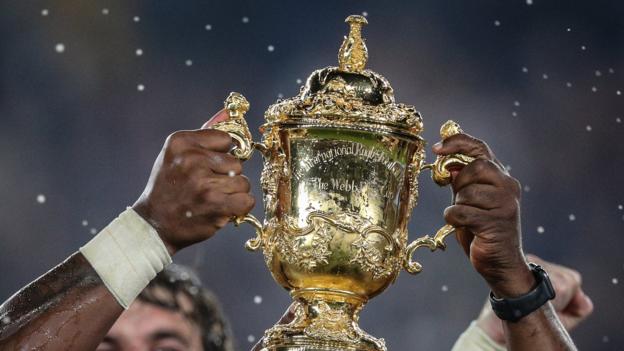
Concussions were reduced by 28% at the 2019 Rugby World Cup compared with the 2018 elite competition average, according to World Rugby.
It was the first World Cup to use the high-tackle sanction framework, offering guidance on how to punish dangerous contact.
There were 74% more yellow cards and 138% more red cards at the tournament than in elite competition in 2018 and World Rugby says this was "a direct contributing factor" to reduced concussions.
The high-tackle sanction framework was created to change player behaviour, encouraging them to lower their tackle height.
World Rugby chief medical officer Dr Eanna Falvey explained that the framework was introduced following research showing 76% of all concussions occur in a tackle, with the tackler sustaining 72% of all concussions.
And there were 37% fewer concussions occurring in the tackle at the World Cup than in elite competition in 2018.
Fewer injury replacements were used than at any other World Cup on record.
On average, 1.13 injury replacements were used per match at the 2019 World Cup compared with 2.08 in 2015.
"These hugely encouraging outcomes of this study endorse our unwavering evidence-based commitment to injury prevention, particularly our continued efforts to protect players from concussive events on the rugby field wherever possible," World Rugby chairman Sir Bill Beaumont said.
"The significant reduction in concussion incidence provides compelling evidence of what can be achieved when competition owners, match officials, disciplinary officers, players and coaches fully buy in to the high-tackle sanction framework. Failure to do so can have significant player welfare and performance consequences."















 Phone: (800) 737. 6040
Phone: (800) 737. 6040 Fax: (800) 825 5558
Fax: (800) 825 5558 Website:
Website:  Email:
Email: 






